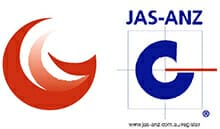What is Metal Fabrication?
We use metal fabrication to create a massive range of metal products, from simple screws and bolts to cars and phones. But what is metal fabrication? The process is key to many industrial and manufacturing operations, which is why it helps to understand what metal fabrication entails. Specifically, within Greg Sewell Forgings’ scope, fabrication is a vital adjunct to forging. In this article, we’ll introduce metal fabrication and consider its uses, applications, and benefits of outsourcing your metal fabrication projects.
Understanding metal fabrication
What is metal fabrication? It’s the process of transforming raw metal, typically flat metal sheets or solid round, into specific metal shapes with your desired shape and qualities. Most metal fabrication products contain common metals like copper, aluminium, tin, and stainless steel. In the case of Greg Sewell Forgings, it is usually carbon-based steel. Because of the wide variety of tools, materials and techniques needed for metal fabrication, specialist metal fabricators working in machine shops and forges typically use these processes. Especially when you need custom metal fabrication jobs, working with metal fabricators can be crucial to the success of your project.
Metal fabrication techniques
The term metal fabrication covers a wide range of different techniques. Cutting could be the most common metal fabrication process. There are multiple types of cutting, including laser cutting, sawing and flame cutting. The best type depends on the metal you’re using and the desired properties of the finished product.
There’s also punching, milling and drilling. In these techniques, metalworkers alter the surface of the metal. This work can create decorative patterns, cut holes or add a new function to the metal piece.
Another central element of metal fabrication is welding. Welders fuse different metal pieces together, employing a variety of methods. For instance, TIG (Tungsten Inert Gas) welding joins thin, delicate materials, and MIG (Metal Inert Gas) welding is a better choice for larger metal pieces.
Within Greg Sewell Forgings, fabrication is utilised on its own, such as, when welding together two pieces of solid bar, as part of an assembly. Or, it is used as an adjunct to the process of forging or bending. For example, forged hexagonal bolts welded together in a cage as foundation bolt assemblies.
The technology of metal fabrication
Answers to the question ‘what is metal fabrication’ change over time. Modern metalwork continually innovates in response to new technological advances. Though hand tools and experience retain their central importance, metal fabrication shops employ a wide range of recent innovations.
The best fabrication shops use computer-aided design and computer-aided manufacturing processes: CAD and CAM. These create 3D prototypes quickly and efficiently. Technology also plays a crucial role when working on metal pieces. Many fabrication processes can now be automated. Newer machinery completes tasks faster and better than in the past. For example, cutting technology like laser cutting outperforms older options like sawing.
The metals you will work with
The raw materials for metal fabrication will vary depending on the finished product you envision. Fabrication uses a range of metals, and typically they’ll start as sheet metal or stock metal forms, like rods, pipes or wires. The metal you choose will depend on a series of properties.
Aluminium is a much softer material than stainless steel, leaving it inappropriate for large industrial structures but valuable in other applications. If you’re working with an experienced metal fabrication company, they should be able to advise you on which metal is best for your needs.
Who needs metal fabrication?
Metal fabrication is essential to modern industry. Metal fabrication processes are crucial in large-scale manufacturing, especially in the aeronautic, auto and energy industries. These sectors use metal fabrication to create durable heavy-duty materials and precisely engineer small components. Without metal fabrication, the world would be a very different place.
The importance of outsourcing
Metal fabrication is a complex topic, covering many different techniques and applications. This complexity makes outsourcing metal fabrication an excellent choice, particularly for those without metal fabrication machinery.
Outsourcing metal fabrication jobs allows companies to consult experts in the field who can anticipate future needs and ensure you receive metal pieces made to your specifications. Working with dedicated metal fabricators has the clear advantage of drawing on the craftsmanship of specialised producers. Experienced fabricators work efficiently to create durable, high-quality final products.
Working with third parties can also be a prudent economic decision. By outsourcing, companies avoid investing in expensive equipment. Your typical metal fabrication company will have easy access to up-to-date machines and technology, ensuring that your project benefits from the latest innovations in the fabrication industry.
Greg Sewell Forgings
If you’re looking for a skilled partner to take you from raw material to end product, Greg Sewell Forgings is the company for you. As one of Australia’s oldest forging companies, we have accumulated extensive experience at all stages of the production process. Our team offers a complete range of forged metal fabrication services, including custom metal fabrication projects. From milling to drilling to welding, we have the expertise that guarantees your work will end in success. We operate across multiple industries and pride ourselves on our dedication to innovation and efficiency. We’re ready to help, whatever you need.





